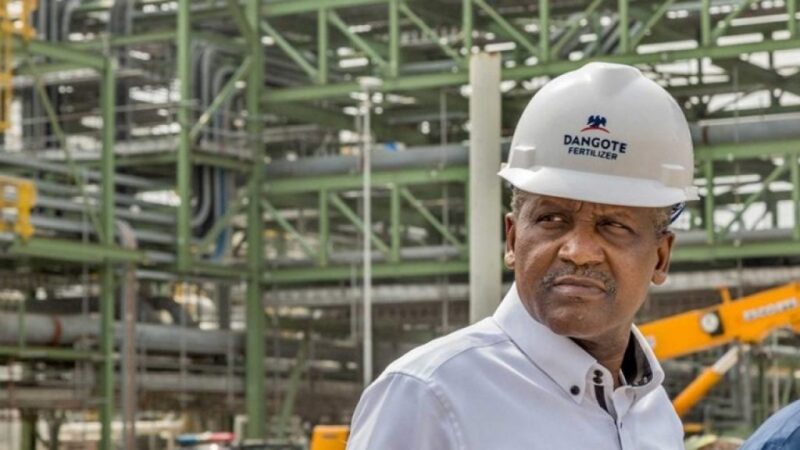Nigeria has the potential to become a major player in the global petroleum refining industry if it can boost its crude oil production and effectively manage domestic crude supply, according to Aliko Dangote, Chairman of Dangote Refinery and Petrochemical Company.
Speaking at a summit organized by the Crude Oil Refinery Owners Association of Nigeria (CORAN) in Lagos, Dangote highlighted the importance of increasing refining capacity to reduce reliance on imports and transform the country into a net exporter of petroleum products.
At the event, attended by government officials and industry stakeholders, Dangote expressed concern that despite Africa producing over 3.4 million barrels of crude oil per day, the continent still imports around 3 million barrels of refined petroleum products daily, primarily from Europe and other regions. These imports are estimated to cost Africa a staggering $17 billion in 2023.
Dangote pointed out that Nigeria has the opportunity to reverse this trend by becoming a hub for petroleum refining, which would reduce the cost of logistics and storage.
“Both the crude oil and the petroleum products will travel shorter distances. The logistics costs of floating storage will be eliminated, and countries can purchase their petroleum product requirements just-in-time.
”Nigeria and Africa can become completely self-sufficient, and we can keep all the value on our shores. We have done it in cement, and we can certainly do it for petroleum products.
“It is worth noting that the Dangote Refinery already produces sufficient diesel and jet fuel to meet Nigeria’s demand. We recently started the production of PMS and will soon ramp up to meet Nigeria’s needs.
”Our refined products have been exported to diverse markets, including Europe, Brazil, the UK, the USA, Singapore, and South Korea,” he added.
He also noted that the Dangote Refinery has already started producing enough diesel and jet fuel to meet Nigeria’s needs, with the production of Premium Motor Spirit (PMS) also underway. The refinery has begun exporting refined products to international markets, including Europe, Brazil, the UK, the USA, Singapore, and South Korea.
To fully capitalize on these opportunities, Dangote stressed the need for Nigeria to develop a refining capacity of 1.5 million barrels per day and prioritize domestic crude supply. He also urged the government to create incentives for investors in the oil sector, emphasizing that the Dangote Refinery was built without any government incentives.
In his speech, Dangote addressed the issue of Africa’s mismanagement of oil proceeds, contrasting it with countries like Norway that invest in future funds from oil revenues.
He also called for better crude oil production to meet the increasing demand from new refineries and praised the Nigerian government’s efforts to fast-track initiatives such as divestments from international oil companies.
Despite the challenges, Dangote said Nigeria is well-positioned to take advantage of global shifts in petroleum trade. “As a vibrant exporter of refined products, Nigeria will witness an improvement in its balance of trade and generate much-needed foreign currency,” he added.
Other industry leaders at the summit echoed Dangote’s sentiments. Abdulrazaq Isa, Chairman of IPPG/Waltersmith Refinery, emphasized the need for government support in ensuring the availability of crude oil and implementing policies that prevent smuggling.
Captain Emmanuel Iheanacho, CEO of Integrated Oil & Gas, highlighted that meeting domestic demand will significantly reduce fuel imports, though investments in crude production need to increase.








